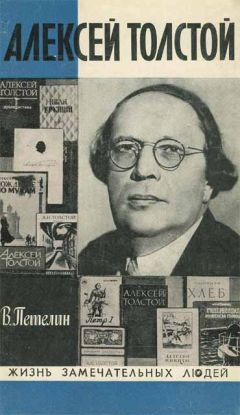Клодия Хэммонд - Искаженное время. Особенности восприятия времени
И наконец, я признательна членам моей семьи и друзьям, которые терпеливо сносили мое вечное нытье о том, что мне не хватает времени закончить книгу, а также моему близкому другу Тиму, который прочитал весь материал разом, значительно его улучшил и вообще выслушивал мои бесконечные рассуждения о времени.
Библиография
Данный список нельзя считать полным, однако в нем собраны основные исследовательские работы, на которые я ссылалась в «Искривлении времени», а также книги, которые пригодились мне в моих собственных исследованиях.
Приношу свои извинения авторам коллективных работ, где указывала только первого автора – делала это исключительно ради сохранения бумаги и деревьев.
Addis, D.R. et al. (2008) Age-related changes in the episodic simulation of future events. Psychological Science, 19, 33—41.
Atance, C.M. (2008) Future thinking in young children. Current Directions in Psychological Science, 17, 2008, 295—298.
Azy, S. et al. (2008) Self in Time: Imagined self-location influences neural activity related to mental time travel. Journal o Neuroscience, 28(25), 6502—6507.
Baddeley, A.D. (1966) Time estimation at reduced body-temperature. The American Journal of Psychology, 79 (3), 475—479.
Baddeley, A.D. et al. (2009) Memory. Hove: Psychology Press.
Bar, M. (2009) The proactive brain: memory for predictions. Theme issue. Predictions in the brain: Using our past to generate a future. Philosophical Transactions of the Royal Society, B, 364, 1235—1243.
Bargh, J.A., Chen, M., & Burrows, L. et al. (1996) Automaticity of social behavior: Direct effects of trait construct and stereotype activation on action. Journal of Personality and Social Psychology, 71, 230—244.
Bar-Haim, Y. et al. (2010) When time slows down: The influence of threat on time perception in anxiety. Cognition & Emotion, 24(2), 255—263.
Berntsen, D. & Bohn, A. (2010) Remembering and forecasting. The relation between autobiographical memory and episodic future thinking. Memory and Cognition, 38(3), 265—278.
Bluedorn, A.C. (2002) The Human Organization of Time: Temporal realities and experience. USA: Stanford University Press.
Boring, L.D. & Boring, E.G. (1917). Temporal judgements after sleep. Studies in Psychology, Titchener Commemorative Volume, 255—279.
Лера Бородицки. Метафоры и структурирование опыта: роль пространственных метафор в понимании времени: www.psychology-online.net/articles/doc–1768.html
Boroditsky, L. (2008) Do English and Mandarin speakers think differently about time? In B.C. Love et al. (eds) Proceedings of the 30 th Annual Conference of the Cognitive Science Society, 64—70.
Boroditsky, L. & Ramscar, M. (2002) The roles of body and mind in abstract thought. Psychological Science, 13(2), 185—188.
Broome, M.R. (2005) Suffering and eternal recurrence of the same: The neuroscience, psychopathology and philosophy of time. Philosophy, Psychiatry and Psychology, 12, 187—194.
Broome, M.R. & Bortolotti, L. (eds) (2009) Psychiatry ad Cognitive Neuroscience. Oxford: Oxford University Press.
Buckner, R. (2010) The role of the hippocampus in prediction and imagination. Annual Review of Psychology, 61, 27—48.
Buehler, R. et al. (1994) Exploring the “planning fallacy”: Why people underestimate their task completion times. Journal of Personality and Social Psychology, 67(3), 366—381.
Buonomano, D.V. et al. (2009) Influence of the interstimu-lus interval on temporal processing and learning: Testing the state-dependent network model. Philosophical Transactions of the Royal Society, B, 364(1525), 1865—1873.
Busby, J. & Suddendorf, T. (2005) Recalling yesterday and predicting tomorrow. Cognitive Development, 20, 362—372.
Casasanto, D. (2010) ‘Space for Thinking’. In Evans, V. & Chilton, P. (eds) Language, Cognition and Space. London: Equinox.
Casasanto, D. & Boroditsky L. (2008) Time in the Mind: Using space to think about time. Cognition, 106, 579—593.
Casasanto, D. & Bottini, R. (2010) Can mirror-reading reverse the flow of time? Spatial Cognition, VII, 335—345.
Conway, M.A. & Haque, S. (1999) Overshadowing the reminiscence bump: Memories of a struggle for independence. Journal of Adult Development, 6, 35—44.
Cotard (1882) Du delire des negations. Archives de neurologie, 4, 152—170.
Коттл, Т. «Воспринимаемое время».
Craig, A.D. (2009) Emotional moments across time: A possible neural basis for time perception in the anterior insula. Philosophical Transactions of the Royal Society, B, 364, 1933-42.
Crane, C. et al. (2011) Suicidal imagery in a previously depressed community sample. Clinical Psychology & Psychotherapy doi:10.1002/cpp.741.
Crawley, S.E. & Pring, L. (2000) When did Mrs Thatcher resign? The effects of ageing on the dating of public events. Memory, 8(2), III–21.
Csikszentmihalyi, M. (1996) Creativity: Flow and the psychology of discovery and invention. New York: Harper Perennial.
DArgembeau, A. et al. (2011) Frequency, characteristics and functions of future-oriented thoughts in daily life. Applied Cognitive Psychology, 25:96-103.
Draaisma, D. (2006) Why Life Speeds Up As You Get Older: How memory shapes our past. Cambridge: Cambridge University Press.
Dunn, E.W. et al. (2003) Location, location, location: the misprediction of satisfaction in housing lotteries. Personality & Social Psychology Bulletin, 29(II), 1421—1432.
Eagleman, D.M. & Pariyadath, V. (2009) Is subjective duration a signature of coding efficiency? Philosophical Transactions of the Royal Society, B, 364(1525), 1841—1851.
Eichenbaum, H. & Fortin, N.J. (2009) The neurobiology of memory based predictions. Philosophical Transactions of the Royal Society, B, 364, 1183—1191.
El Sawy, O.A. (1983) Temporal perspective and managerial attention: A study of chief executive strategic behaviour. Dissertation Abstracts International, 44(05A), 1556–7.
Flaherty, M.G. (1998) Notes on a Watched Pot. New York: New York University Press.
Foster, R. & Kreitzman, L. (2003) Rhythms of Life: The biological clocks that control the daily lives of every living thing. London: Profile Books.
Fradera, A. & Ward, J. (2006) Placing events in time: the role of autobiographical recollection. Memory, 14(7), 834—845.
Франкл, Виктор. Человек в поисках смысла. М.: «Прогресс», 1990.
Frederickson, B.L. et al. (2003) What good are positive emotions in crises? A prospective study of resilience and emotions following the terrorist attacks on the United States on September 11th, 2001. Journal of Personality and Social Psychology, 84(2), 365—376.
Friedman, W.J. (1987) A follow-up to ‘scale effects in memory for the time of events’: The earthquake study. Memory and Cognition, 15, 518—520.
Friedman, W.J. et al. (2010) Aging and the speed of time. Acta Psychologica, 134, 130—141.
Gevers, W. et al. (2003) The mental representation of ordinal sequences is spatially organized. Cognition, 87(3), B87–B95.
Гилберт, Дэниел. Спотыкаясь о счастье. СПб: «Питер», 2008.
Gilbert, D.T. et al. (1998) Immune neglect: A source of durability bias in affective forecasting. Journal of Personality & Social Psychology, 75(3), 617—638.
Gilbert, D.T. & Wilson D.W. (2009) Why the brain talks to itself: Sources of error in emotional prediction. Philosophical Transactions of the Royal Society, B, 364, 1335—1341.
Halberg, F. et al. (2008) Chronomics, human time estimation, and aging. Clinical Interventions in Aging, 3(4) 749—760.
Hassabis, D. & Maguire, E.A. (2009) The construction system of the brain. Philosophical Transactions of the Royal Society, B, 364, 1263—1271.
Hassabis, D. et al. (2007) Patients with hippocampal amnesia cannot imagine new experiences. Proceedings of the National Association of Sciences, 104, 1726—1731.
Hauser, D.J. et al. (2009) Mellow Monday and furious Friday: The approach-related link between anger and time representation. Cognition and Emotion, 23, 1166—1180.
Hawton, K. (2005) Restriction of access to methods of suicide as a means of suicide prevention. In Hawton, K. (ed.) Prevention and Treatment of Suicidal Behaviour: From science to practice. Oxford: Oxford University Press.
Henderson, J. et al. (2006) Timing in free-living rufous hummingbirds, Selasphorus rufus. Current Biology, 16(5), 512—515.
Hoagland, H. (1933) The physiological control of judgments of duration: Evidence for a chemical clock. Journal of General Psychology, 9, 267—287.
Hoffman, E. (2009) Time. London: Profile.
Holmes, A. & Conway, M.A. (1999) Generation identity and the reminiscence bump: Memories for public and private events. Journal of Adult Development, 6(I) 21—34.
Holmes. E. et al. (2007) Imagery about suicide in depression – flash-forwards? Journal of Behavior Therapy and Experimental Psychiatry, 38(4), 423—434.
Hunt, A.R. (2008) Taking a long look at action and time perception. Journal of Experimental Psychology, Human Perception and Performance, 34 (I) 125—136.
Гуссерль, Эдмунд. Феноменология внутреннего сознания времени. М.: «Логос», 1994.
Джемс, Уильям. Принципы психологии. М.: издательство «Харвест», 2003.
Jiga-Boy, G.M. et al. (2010) So much to do and so little time: Effort and perceived temporal distance. Psychological Science, 21(12), 1811—1817.
Kennett, J. & Matthews, S. (2009) Mental time travel, agency and responsibility. In Broome, M. & Bortolotti, L. (eds) Psychiatry as Cognitive Neuroscience: Philosophical perspectives. Oxford: Oxford University Press.
Kerkhof, A. (2010) Stop Worrying: Get your life back on track with CBT. Berkshire: Open University Press.
Killingsworth, M.A. & Gilbert, D. (2010) A wandering mind is an unhappy mind. Science. 330, 932.
Klein, S. (2006) Time: A user’s guide. London: Penguin.
Koch, G. et al. (2002) Selective deficit of time perception in a patient with right prefrontal cortex lesion. Neurology, 59(10), 1658–16559.
Kogure, T. et al. (2001) Characteristics of proper names and temporal memory of social news events. Memory, 9(2), 103–16.
Lachman, M. et al. (2008) Realism and illusion in Americans’ temporal views of their life satisfaction: Age differences in reconstructing the past and anticipating the future. Psychological Science, 9, 889—897.
Langer, E.J. (2009) Counterclockwise. New York: Ballantine Books.
Langer, J. et al. (1961) The effect of danger upon the experience of time. The American Journal of Psychology, 74(I), 94—97.
Leafhead, K.M. & Kopelman, M.D. (1999) ‘Recent advances in moving backwards’. In Della Salla, S. (ed.) Mind Myths. New York: Wiley.
Lemlich, R. (1975) Subjective acceleration of time with aging. Perceptual and Motor Skills, 41, 235—238.
Leroy, S. (2009) Why is it so hard to do my work? The challenge of attention residue when switching between work tasks. Organizational Behavior and Human Decision Processes, 109, 168—181.
Levine, R. (2006) A Geography of Time: The temporal misadventures of a social psychologist. Oxford: Oneworld.
Lewis, P.A. & Miall, R.C. (2009) The precision of temporal judgement: milliseconds, many minutes, and beyond. Philosophical Transactions of the Royal Society, B, 364, 1897—1905.
Liberman, N. & Trope, Y. (1998) The role of feasibility and desirability considerations in near and distant future decisions: A test of temporal construal theory. Journal of Personality and Social Psychology, 75, 5–18.
Linton, M.R. (1988) ‘Ways of searching and the contents of memory’. In Rubin, M.R. (ed.) Autobiographical Memory. Cambridge University Press: Cambridge.
Linton, M. (1975) ‘Take-two-items-a-day-for-five-years study’. In Norman, D.A. et al. (eds) Explorations in Cognition. W.H. Freeman: San Francisco.
Loewenstein, G. & Frederick, S. (1997) ‘Predicting reactions to environmental change’. In Bazerman, H.H. et al. (eds.) Environment, Ethics & Behaviour. San Francisco: New Lexington.
Loftus, E.F. et al. (1987) Time went by so slowly: Overestimation of event duration by males and females. Applied Cognitive Psychology, I, 3–13.
Logan, C.J. et al. (2011) A case of mental time travel in ant-following birds? Behavioral Ecology, 22(6), 1149—1153.
Mangan, P.A. et al. (1996) Altered time perception in elderly humans results from the slowing of an internal clock. Society for Neuroscience Abstracts, 22, 183.
Mann, H. et al. (2009) Time-space synaesthesia – a cognitive advantage? Consciousness and Cognition, 18, 619—627.
Манн, Томас. Волшебная гора. Николаев: «Крус», 1994.




